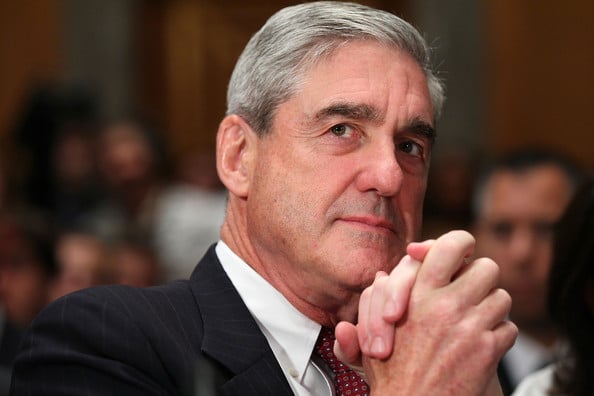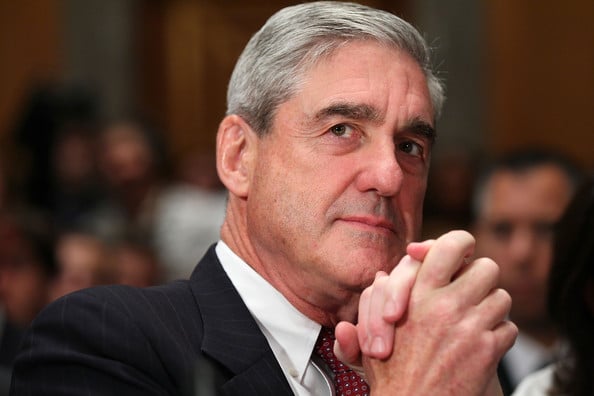In the wake of the federal criminal conviction of former Trump official Paul Manafort and the guilty plea in federal court of former Trump lawyer Michael Cohen, the mainstream press is singing the praises of special prosecutor (and former FBI Director) Robert Mueller and the Justice Department.
In the process, Trump’s critics are condemning his denunciation of “flipping,” the process by which federal prosecutors offer a sweet deal to criminal defendants in return for testifying against a “higher-up” who the feds are also prosecuting. The press and the anti-Trumpsters say that such a practice is part of the “rule of law” and essential to the proper administration of justice.
Nothing could be further from the truth. Whatever else might be said about Trump, he is absolutely right on this point. The process of offering sweetheart deals to people in return for their “cooperation” to get someone else convicted has long been one of the most corrupt aspects of the federal criminal-justice system, especially as part of the federal government’s much-vaunted (and much-failed) war on drugs.
Suppose a federal criminal defendant contacts a prospective witness in a case and offers him $50,000 in return for his “cooperation” in his upcoming trial. The money will be paid as soon as the trial is over. The defendant makes it clear that he wants the witness to “tell the truth” but that his “cooperation” when he testifies at trial would be greatly appreciated.
What would happen if federal officials learned about that communication and offer? They would go ballistic. They would immediately secure an indictment for bribery and witness tampering.
What if the defendant says, “Oh, no, I wasn’t tampering with the witness. I specifically told him that I wanted him to tell the truth when he took the witness stand. I was just seeking his friendly ‘cooperation’ with my $50,000 offer to him.”?
It wouldn’t make a difference. Federal prosecutors would go after him with a vengeance on bribery and witness-tampering charges. And it is a virtual certainty that they would get a conviction.
There is good reason for that. The law recognizes that the money could serve as an inducement for the witness to lie. Even though the defendant tells him to “tell the truth,” the witness knows that the fifty grand is being paid to him to help the defendant get acquitted, especially since it is payable after the trial is over. The temptation to lie, in return for the money, becomes strong, which is why the law prohibits criminal defendants from engaging in this type of practice.
Suppose a federal prosecutor says to a witness, “You are facing life in prison on the charges we have brought against you. But if you ‘cooperate’ with us to get John Doe, we will adjust the charges so that the most the judge can do is send you to jail for only 5 years at most. If you are really ‘cooperative,’ we will recommend that the judge give you the lowest possible sentence, perhaps even probation. Oh, one more thing, we want to make it clear that we do want you to tell the truth.”
Do you see the problem? The temptation to please the prosecutor with “cooperation” becomes tremendous. If the witness can help secure a conviction of Doe, he stands to get a much lighter sentence for his successful “cooperation.” The inducement to commit perjury oftentimes takes over, notwithstanding the prosecutor’s admonition to the witness to “tell the truth.”
Defenders of this corrupt process say that without it, prosecutors could never get convictions. That’s pure nonsense. For one thing, prosecutors can secure a conviction against the witness and then force him to testify once his case is over. That’s because a person whose case is over is unable to rely on the Fifth Amendment to avoid testifying in the case against John Doe.
Moreover, the prosecutor can give what is called “use immunity” to the witness, which then forces him to testify in the case against Doe. Use immunity is not full immunity from prosecution. It simply means that the prosecutor cannot use the witness’s testimony against Doe to convict the witness at his trial. The prosecutor must convict him with other evidence.
But even if it means that the prosecutor is unable to secure some convictions, the question has to be asked: Do we want prosecutors securing convictions in this way? After all, there is a related question that must be asked: How many innocent people are convicted by perjured testimony from a witness who is doing his best to “cooperate” with the prosecution in the hope of getting a lighter sentence?
Given all the accolades being accorded Mueller, it is a shame that he has chosen to go down the same corrupt road that all other federal prosecutors have traveled. He didn’t have to do that. He could have led the way out of this immoral morass by taking a firm and public stand against this corrupt procedure. The fact that he has chosen instead to participate in it is a shame, to say the least.
Reprinted with permission from the Future of Freedom Foundation.


